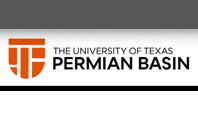Graduate Theses
Date of Award
Spring 5-2008
Document Type
Thesis
Degree Name
Master of Arts (MA)
Department
Psychology
Supervisory Committee Chair
James Olson, Ph.D.
Second Advisor
Spencer K. Thompson, Ph.D.
Third Advisor
Linda Montgomery, Ph.D.
Abstract
The present study explored facial affect recognition, discipline and self-efficacy correlates, predicted using the Social Cognitive Theory framework. A sample of undergraduate students (N—114) from The University of Texas of the Permian Basin, were surveyed on parental style, discipline, self-efficacy, and then tested for facial affect recognition. The results indicated that participants reporting more corporal punishment scored lower on facial affect than those reporting less corporal punishment (p < .05). No significance was found for corporal punishment and self-efficacy (p > .05). The parental style of the father emerged as a significant predictor for the relationship between corporal punishment and facial affect recognition (p < .05). Results appear to support the idea that the social environment parents, especially fathers, create via discipline may hinder ability to interpret emotion. One important implication of this study is that paternal influence may be more vital to emotional detection development than previously considered.
Recommended Citation
Harris, Julie, "Discipline, Facial Affect Recognition and Self-Efficacy" (2008). Graduate Theses. 29.
https://falconcommons.utpb.edu/utpb-cas/29
Included in
Analytical, Diagnostic and Therapeutic Techniques and Equipment Commons, Family, Life Course, and Society Commons, Psychiatric and Mental Health Commons

